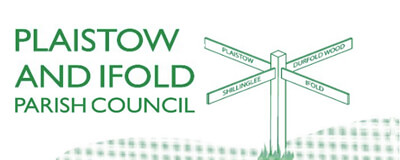You
might think that this is the first time ‘road verges’ and ‘nature-friendly’
have been mentioned in the same sentence. You’d be wrong - West Sussex County
Council has been promoting nature on its road network for more than 40 years -
ever since the Notable Road Verge programme came into being. Notable Road
Verges are those with significant native wildflowers, for example, local
varieties of orchid.
So, if you notice a road verge with grass that’s longer than you’d expect, it’s likely to be because it’s helping nature and that’s good for all of us! Inspired by the council’s Pollinator Action Plan, which aims to increase the number of crucial pollinating insects - bees and moths – this has become a much higher priority in recent years and explains why the council is receiving an increasing number of requests for verges to be left uncut.
Steve Hill, Lead Officer with the Stakeholder and Partnerships Team which coordinates the scheme, said: “West Sussex has the equivalent of more than 43,000 grass tennis courts worth of road verges. So, it’s a significant area of land. Road verges follow the existing road network, enabling habitats to link up so that pollinators can travel and pollinate more effectively.”
Last year, the county council launched the Community Road Verges (CRV) and Pollinator Highways projects, focused on creating nature-friendly road verges in urban locations, led by neighbourhoods from all parts of the county.
Community Road Verges are cut once a year with residents monitoring the verge and removing grass cuttings after it’s mowed. They also start conversations with locals about nature-friendly verges, helping to allay any concerns.
With Pollinator Highways, the County Council partners with local parishes and other organisations to create large areas of linked pollinator habitats, using road verges as the starting point. People living near the pollinator highway are encouraged to support the scheme by making green spaces wilder – through garden areas and even window boxes.
The first pollinator highway was established in Lancing and there’s a new one developing this year in Selsey led by the Manhood Wildlife and Heritage Group. There’s also been interest for new pollinator highways to begin in Horsham and Sompting.
The County Council has also partnered with South Down National Park Authority and several parishes to further increase biodiversity along selected country lanes.
Known officially as the Downland Pollinator Highway, the three-year project utilises the skills of professional ecologists and a new cut and collect mower. Cutting and collecting grass cuttings, over time, lowers the fertility of the soil and allows native wildflowers an opportunity to out-compete the vigorous grasses.
Steve added: “West Sussex County Council is exploring different ways of managing road verges to help nature and we continue to make sure that local views and opinions are an important part of the process as we develop our environmentally-friendly exploration on behalf of our residents – and the local environment.”
For further information about any of our environmental initiatives email active.communities@westsussex.gov.uk
Notice Date: 02/06/2022
